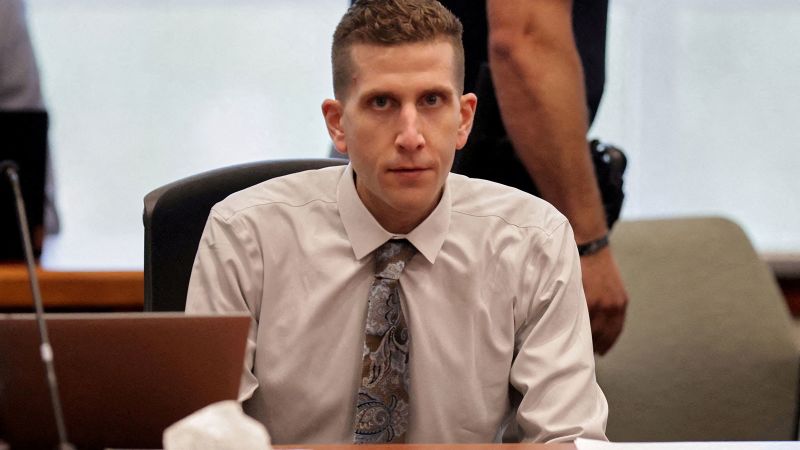Bryan Kohberger stood expressionless in a Boise, Idaho courtroom on Wednesday as he admitted to the murders of four Idaho college students, answering “yes” to each name called out by the judge. The 30-year-old former PhD student of criminology entered a plea deal that removes the possibility of the death penalty, a significant development in a case that has gripped the nation.
The courtroom was filled with family members of the victims as Kohberger confessed to all five counts in the indictment, including four counts of first-degree murder and one count of burglary. The charges stem from the fatal stabbings of Ethan Chapin, 20; Kaylee Goncalves, 21; Xana Kernodle, 20; and Madison Mogen, 21, in their off-campus home in Moscow, Idaho, on November 13, 2022.
Prosecutors’ Decision to Strike a Plea Deal
The plea deal, which spares Kohberger from the death penalty, has raised questions given the robust evidence against him, including DNA found on a knife sheath near one of the victims. According to CNN trial correspondent Jean Casarez, the decision to accept a plea deal despite strong evidence remains a mystery. “Prosecutors hold the key to whether a trial goes forward or whether there is a plea deal,” Casarez noted, emphasizing the case’s strength and the financial burden a trial would impose on Latah County.
The case had been moved to Boise to ensure a fair trial, and the high cost of such proceedings may have influenced the decision. The plea bargain, which results in life imprisonment without parole, was the only negotiating tool for Kohberger’s defense, who cited his autism in their efforts to avoid the death penalty.
Impact on Victims’ Families and Public Closure
The plea deal has left several families feeling unresolved, as the lack of a trial means no public adjudication of Kohberger’s motive. Some family members expressed frustration over unanswered questions, such as the involvement of others, the origin of the murder weapon, and Kohberger’s specific actions on the night of the murders.
Steve Goncalves, father of victim Kaylee Goncalves, voiced his dissatisfaction, stating, “No one is caring about these four young lives that were taken so soon.” Meanwhile, the family of Madison Mogen expressed a sense of closure, while Xana Kernodle’s family remains troubled by the lack of answers.
Courtroom Reactions and Emotional Tensions
The courtroom atmosphere was tense and silent during the proceedings, with family members intensely observing Kohberger and the judge. Media and attendees were instructed to maintain composure, yet the emotional weight was palpable, especially when prosecutor Bill Thompson choked up while naming the victims.
Kohberger’s family was notably absent from the courtroom, although they were expected to attend. They have requested privacy during this difficult time. The emotional toll on both the victims’ and Kohberger’s families underscores the human impact of the case.
Looking Ahead: Sentencing and Legal Implications
With Kohberger’s sentencing scheduled for July 23, family members will have the opportunity to deliver victim impact statements. The absence of a pre-sentencing report, typically a standard procedure, highlights the unique nature of this case. The gag order, which has restricted public commentary, will be lifted post-sentencing, allowing parties to speak freely.
Kohberger has waived his right to appeal, committing to a life sentence in an Idaho prison. The rapid progression of the plea deal has drawn criticism from some victims’ families, who were unprepared for the swift resolution. The judge’s apology for the expedited process reflects the unusual speed of this legal conclusion.
As the community and families await the final sentencing, the case of Bryan Kohberger serves as a poignant reminder of the complexities and emotional depths involved in the pursuit of justice.
